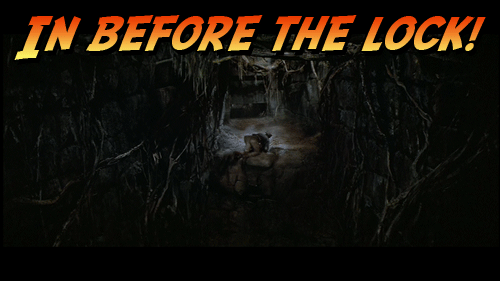nnms
First Post
Monte Cook commented about playtesting (see the D&D 5E Info red link above):
"Playtesting in the Lost Caverns of Tsojcanth. My dwarf just slew a lurker with a well-timed crit to save the swallowed paladin." - Monte Cook.
Ugh.
I'm not happy to see "lurker" unless it's actually a monster called a lurker he's talking about. I dislike combat roles for monsters as well and if combat still revolves around them, the game may end up being too close to 4E for my liking. I don't want a game where I fight "brutes" or "soldiers" or "elite lurkers" or whatever.
So hopefully Monte was talking about an actual lurker monster:
http://en.wikipedia.org/wiki/Lurker_(Dungeons_&_Dragons)
Categories for monsters that are rigid enough that saying which category a given monster belongs to tells you more important information than describing the monster by name are too rigid for me.
Anyone else have thoughts on monster roles?
"Playtesting in the Lost Caverns of Tsojcanth. My dwarf just slew a lurker with a well-timed crit to save the swallowed paladin." - Monte Cook.
Ugh.
I'm not happy to see "lurker" unless it's actually a monster called a lurker he's talking about. I dislike combat roles for monsters as well and if combat still revolves around them, the game may end up being too close to 4E for my liking. I don't want a game where I fight "brutes" or "soldiers" or "elite lurkers" or whatever.
So hopefully Monte was talking about an actual lurker monster:
http://en.wikipedia.org/wiki/Lurker_(Dungeons_&_Dragons)
Categories for monsters that are rigid enough that saying which category a given monster belongs to tells you more important information than describing the monster by name are too rigid for me.
Anyone else have thoughts on monster roles?
Last edited:

